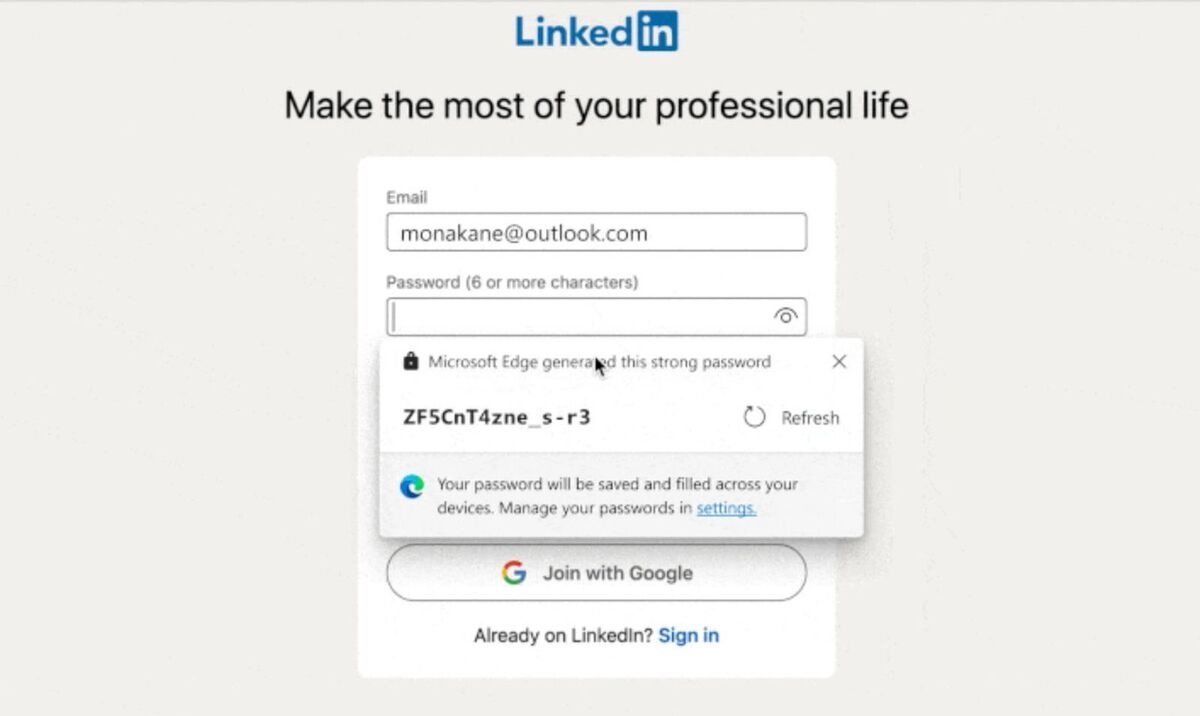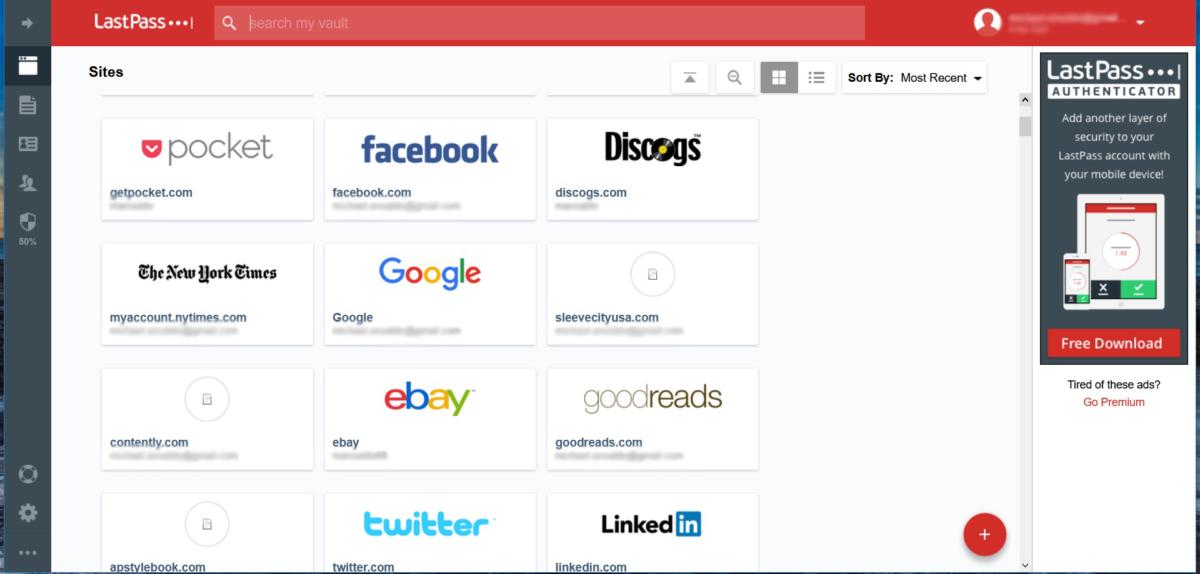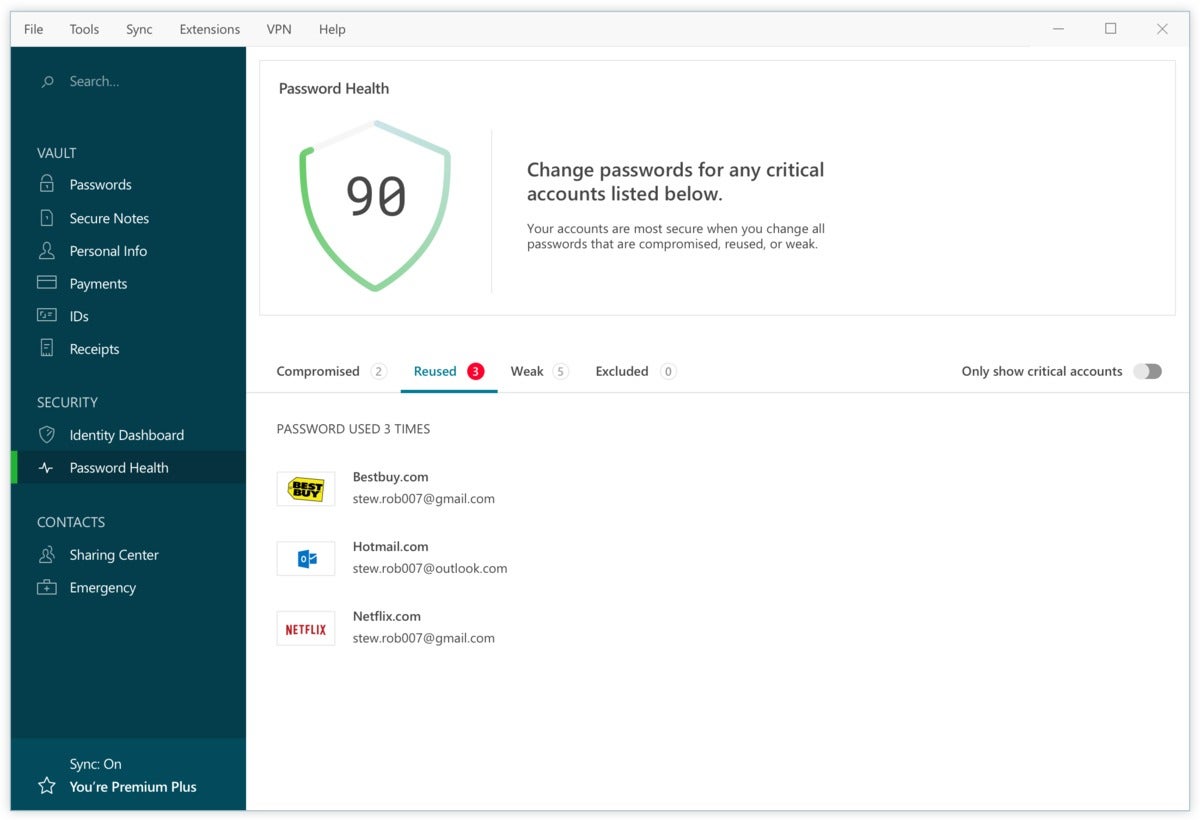Back in the day, conventional wisdom said to never store your passwords in your browsers. That’s not true anymore. Modern browsers are much more secure, tied to accounts protected by two-factor authentication. Most of the major ones can now double as a basic password manager, complete with the ability to create strong, random passwords--Microsoft’s Edge browser is the latest to support the feature. Most people will still probably be better off using a third-party password manager, though.
There’s no doubt that using your browser’s password manager can solve some headaches. If nothing else, it makes it easy to use strong, unique passwords for every site and service you use, eliminating potential risk from reusing passwords. (If a website gets breached, criminals can use your leaked login information to sign into other sites if you reuse passwords.) Some will even tell you if your login information has been leaked in a security breach and prompt you to switch out passwords. And hey: Browsers are free!
 Microsoft
Microsoft
Microsoft Edge's random password creation feature.
But browser-based password managers lock you into using that browser.
If you use Chrome’s password manager, for example, your login information will be synced across your Google account. When you try to sign into a website in Firefox or Edge, those passwords aren’t readily available—they’re only in Chrome. And if you’re using the ability to automatically generate long, random passwords (you should be!) there’s no way you’ll be able to recall the information without logging into Chrome to find it.
Signing into mobile websites or apps can also be a massive headache, though if you’re an Android user that stores passwords in Chrome, or an iOS user that stores passwords in Safari, you might be able to sign into mobile apps that hook into your Google or Apple account, respectively.
Why you need a password manager
 PCWorld
PCWorld
LastPass displays all your login accounts as tiles in its virtual vault.
Conversely, third-party password managers like LastPass (our favorite) and Dashlane (a close second) were designed by the ground up to be cross-platform and work with any browser. Once you’ve installed their tools, you can log into any service in any software on any device, easy-peasy. Websites? Mobile apps? Desktop software? No problem. That alone makes a standalone password manager worthwhile in today’s multi-device world. (They can usually import saved passwords from your browser when you get started!)
Password managers offer other benefits, too. Browsers revolve around your account alone, but password managers include features that help you easily and securely share passwords with other people—helpful if someone needs to use your Wi-Fi, or a coworker needs access to a joint account, or if you want to share your Netflix password with your parents. Sharing login details is a pain if the information is stored deep in your browser.
Password managers usually support more robust auto-fill options as well. Yes, your browser likely includes those capabilities too, but as with the actual password management, it’s a basic incarnation. Anything your browser can do, a password manager can usually do better.
Password managers may also offer other helpful features. It can issue reminders to change out old passwords, provide a secure vault to store sensitive information, share emergency passwords with chosen contacts, or even offer basic VPN capabilities for accessing open Wi-Fi hotspots safely.
 Dashlane
Dashlane
Dashlane's Password Health report identifies weak, compromised, and reused passwords so you can easily replace them
Think of it this way: Password managers exist to keep your accounts secure. Their developers are wholly focused on your protection. With browsers, password management is just another supported feature.
If you don’t need to worry about sharing passwords with others, or you use only a single browser on your devices, a browser-based password manager might work very well for you. Using the random password generation feature in your browser is a big step up over reusing passwords or using simple passwords. If you’re a Chrome user with an Android phone, or a Safari user with an iPhone, those stored passwords could even be carried over to many mobile apps with minimal headaches.
Most people, however, would be better off with a proper password manager for all the reasons outlined above. The top options all offer free accounts with basic capabilities, while splurging on a premium account only costs a few bucks a month. It’s money well spent. Our guide to the best password managers can point you toward the cream of the crop, and it explains everything you should look for in a decent password management service.
https://ift.tt/3iJBr8x
Bagikan Berita Ini














0 Response to "Why your browser's password manager isn't good enough - PCWorld"
Post a Comment